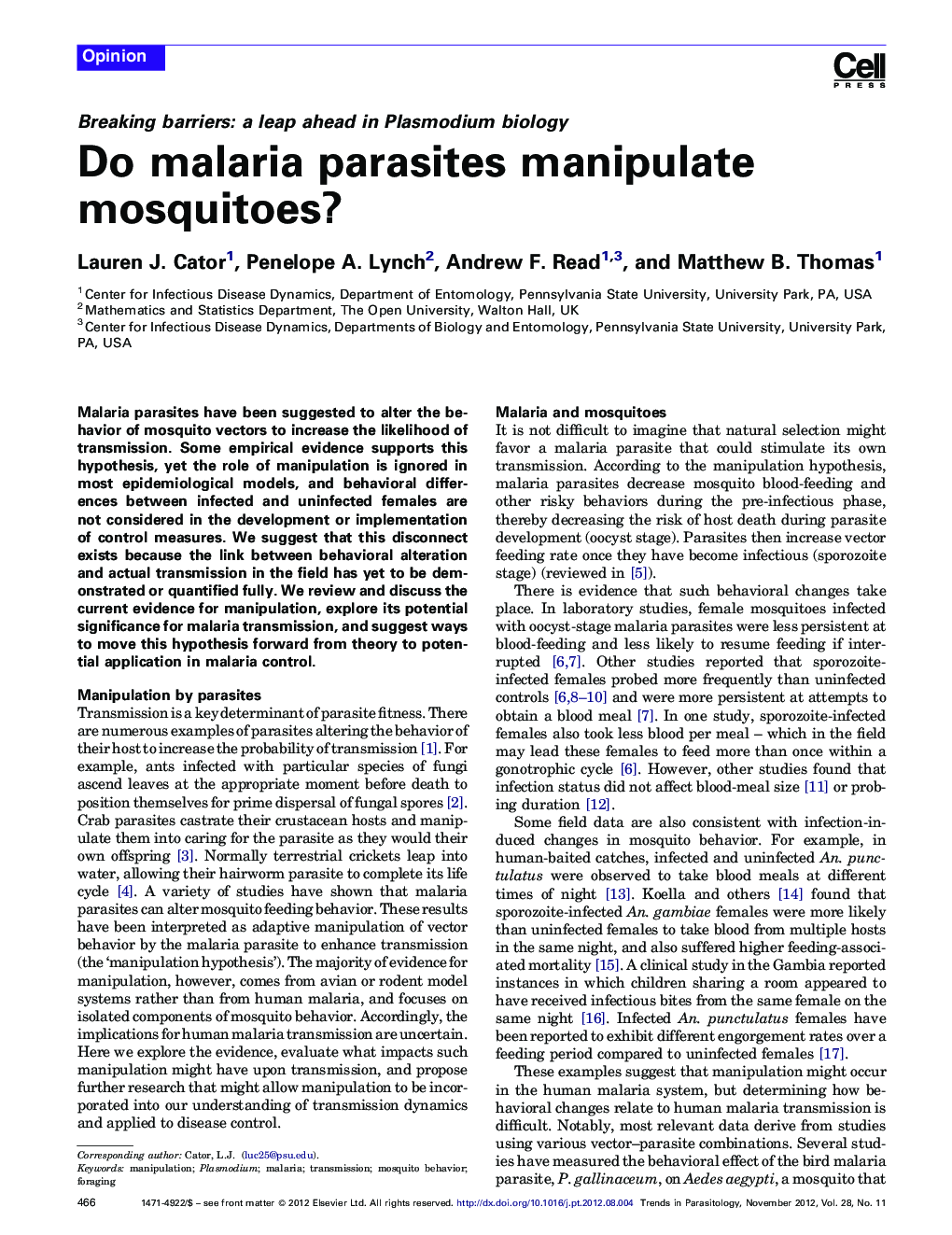| کد مقاله | کد نشریه | سال انتشار | مقاله انگلیسی | نسخه تمام متن |
|---|---|---|---|---|
| 3423065 | 1226983 | 2012 | 5 صفحه PDF | دانلود رایگان |

Malaria parasites have been suggested to alter the behavior of mosquito vectors to increase the likelihood of transmission. Some empirical evidence supports this hypothesis, yet the role of manipulation is ignored in most epidemiological models, and behavioral differences between infected and uninfected females are not considered in the development or implementation of control measures. We suggest that this disconnect exists because the link between behavioral alteration and actual transmission in the field has yet to be demonstrated or quantified fully. We review and discuss the current evidence for manipulation, explore its potential significance for malaria transmission, and suggest ways to move this hypothesis forward from theory to potential application in malaria control.
Journal: - Volume 28, Issue 11, November 2012, Pages 466–470